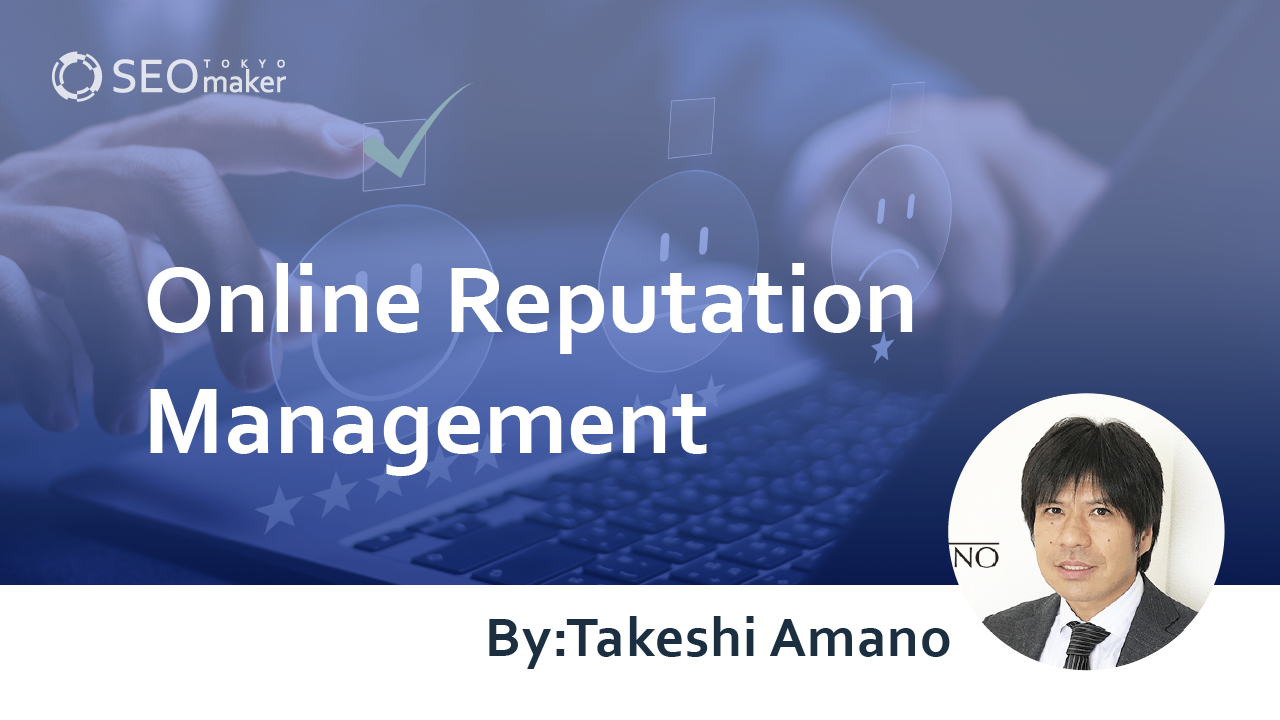Online Reputation Management
contents
- 1 Why Online Reputation Management is important
- 2 Challenges in Online Reputation Management
- 3 Summary

Online reputation management (ORM) involves monitoring, influencing, and controlling an individual’s or group’s reputation on the internet. The practice aims to shape public perception about a person or organization by addressing content that is damaging their reputation and using customer feedback to solve problems before they damage the individual’s or brand’s reputation.
ORM combines marketing, public relations, legal and search engine optimization (SEO) strategies to protect and enhance an online presence or repair a negative one. This might include managing content in search engine results, responding to customer comments on social media, managing negative online reviews, and engaging in strategies that promote positive content or solve negative narratives.
Why Online Reputation Management is important
- Influencing Customer Decisions . Consumers frequently research products, services, and companies online before making purchasing decisions. A positive online reputation helps attract new customers, while a negative one can discourage them and drive them to competitors.
- Credibility and Trust building. A good reputation can signal to customers that a business is trustworthy and credible. Regular monitoring and managing the online narrative can help maintain a favorable public image, which is vital for retaining and acquiring customers.
- Search Engine Ranking. Search engines prioritize content that is popular and trusted by users. Effective ORM can lead to better visibility and higher rankings in search results, which in turn drives more traffic to a business’s website or social media profiles.
- Reducing Negative Publicity. No organization is immune to negative publicity, which can come from various sources like unhappy customers, badly tempered employees, or competitors. ORM allows businesses to respond swiftly to reduce such issues before they increase and cause lasting damage to the brand.
- Attracting Better Talent. Companies with good online reputations are more likely to attract and retain top talent. Prospective employees often research company reviews and feedback from current and former staff, so a positive online presence can make a company more appealing to
- Maintaining Investor Confidence. Investors also monitor online news and discussions about companies in which they invest or plan to invest. Effective ORM can ensure that investors find positive information, thereby maintaining or increasing investor confidence and potentially leading to more favorable financial options.
- Legal and Ethical Benefits. Sometimes, ORM can help identify and address potentially fake or false information spread online. Quick and appropriate management of such content can prevent legal issues and maintain ethical standards.
- Cost-Effective Marketing. A strong online reputation can be a powerful marketing tool that enhances advertising efforts at a lower cost. Positive online reviews, user testimonials, and word-of-mouth can significantly influence broader audiences without the substantial costs associated with traditional marketing strategies.
Challenges in Online Reputation Management
- Volume of Digital Content. The amount of content generated daily on blogs, forums, social media platforms, and review sites can be overwhelming. Monitoring all mentions of a brand across this expansive digital landscape is time-consuming and requires strong tools and resources.
- Speed of Information Spread. Information spreads rapidly online, especially on social media platforms. Negative news or reviews can go viral within hours, making it challenging to control or reduce damage quickly.
- Permanence of Online Content. Once something is posted online, it is difficult to remove. Negative content can resurface even after it’s been addressed, as nothing truly disappears on the internet.
- Handling Negative Feedback. Responding to negative feedback in a way that satisfies the unhappy party and maintains the brand’s image is tricky. Finding the right tone and resolution requires skill and often a personalized approach, which can be resource-intensive.
- Measuring Impact . Quantifying the impact of online reputation initiatives can be difficult. While tools and software can track changes in online sentiment and visibility, directly connecting these changes to business outcomes like sales or customer retention requires sophisticated analytics.
- Maintaining authenticity. Balancing the promotion of positive content and handling negative remarks without appearing manipulative is crucial. Consumers value authenticity, and efforts that appear too staged can backfire and further harm the reputation.
- Resource Allocation. Effective ORM requires a significant investment in terms of tools, personnel, and time. Allocating these resources without guarantee of immediate visible return can be challenging, especially for smaller businesses with limited budgets.
Key Components of Online Reputation Management
-
Monitoring
Search Engine Monitoring- Regularly checking search engine results pages (SERPs) to see what appears when someone searches for the brand, products, services, or key personnel.
Social Media Monitoring- Using tools to track mentions and conversations about the brand across various social media platforms.
Review Sites and Forums- Keep an eye on industry-specific review sites and forums where customers may discuss their experiences.
- Content Management
Website Content- Ensuring that the content on the official website is up-to-date, relevant, and portrays the brand positively.
Blog Posts and Articles- Regularly publishing high-quality articles and blog posts that help to position the brand as a leader in its field.
- Search Engine Optimization (SEO)
Positive Content Promotion- Using SEO strategies to boost the visibility of positive content about the brand in search engine results.
Keyword Optimization- Targeting specific keywords that potential customers might use to find information related to the brand or industry.
Backlink Strategy- Building a strong profile of backlinks from reputable sites to enhance SEO and drive positive content higher in search results.
- Reputation Repair and Crisis Management
Negative Content Management- Addressing negative content that could damage the brand’s reputation through direct responses or by creating positive content to counteract the negative.
Response Strategies- Developing plans for responding to crises or negative publicity swiftly and effectively.
Legal Action- Taking legal steps if necessary to remove untrue content from the web.
- Feedback and Reporting
Analytics- Using tools to analyze the effectiveness of ORM strategies, such as changes in the volume of positive versus negative mentions.
Performance Reports- Generating detailed reports to understand how the brand’s online reputation is impacting overall business goals.
- Strategic Communication
Messaging- Ensuring all communication from the brand is consistent with its values and messaging strategy.
Media Relations- Building and maintaining positive relationships with the media to aid in positive coverage and quick responses to inquiries.
Stakeholder Communication- Keeping internal stakeholders (eg, employees, investors) informed about ORM strategies and developments.
Strategies for Effective Online Reputation Management
- Establish a Monitoring System
Use Tools- Implement tools like Google Alerts, Mention, or Social Mention to monitor mentions of your brand across different platforms.
Regular Reviews- Schedule regular checks on your brand’s presence on search engines, social media, review sites, and forums.
- Create High-Quality Content
Content Development- Produce and distribute valuable, high-quality content that aligns with your audience and reflects positively on your brand.
SEO- Optimize your content with relevant keywords to improve visibility in search engine results.
Diversify Format- Include various formats like blogs, podcasts, videos, and infographics to engage different groups of your audience.
- Be Proactive in Communication
Active Social Media Presence- Maintain an active presence on social media platforms where your customers are most active. Regular posts, updates, and interactions help build a positive perception.
Public Relations- Build relationships with media outlets to help promote positive stories and prevent negative publicity when necessary.
- Handle Negative Feedback Effectively
Develop a Response Plan- Have a crisis management plan in place for handling negative feedback, detailing how to respond quickly and effectively.
Resolve Publicly- When possible, show that you are resolving issues. This demonstrates your commitment to customer satisfaction.
- Train Your Team
Social Media Guidelines- Ensure that anyone posting on behalf of your brand is trained and understands your brand’s voice and how to engage with customers appropriately.
Customer Service Training- Equip your customer service team with the skills needed to handle inquiries and complaints effectively and in alignment with your brand’s standards.
- Legal Considerations
Copyrighted Material- Be cautious about using content that isn’t yours or isn’t licensed. Violating copyright can damage your reputation.
Defamation Monitoring- If false information is spread about your brand, consider legal options to have it removed if it does not resolve through standard channels.
- Evaluate and Adapt
Monitor Changes- Keep an eye on how changes in your ORM strategies affect your brand’s online presence.
Adapt Strategies- Based on what works or doesn’t, adjust your approaches to continuously improve your brand’s image.
Recommend tools, platforms, and resources that can aid in online reputation management
- Monitoring Tools
Google Alerts- This free tool allows you to monitor the web for new content about any topic of interest, especially useful for keeping tabs on mentions of your brand or products.
Mention- Tracks mentions across social media platforms and the web in real time, providing insights into your brand’s visibility online.
- Social Media Management Platforms
Hootsuite- Allows you to manage all your social media profiles from a single dashboard, schedule posts in advance, and track social media analytics.
Sprout Social- Offers comprehensive management tools for social media including publishing, analytics, engagement, and listening features.
- Review Management Platforms
Yotpo- Helps brands collect customer reviews, photos, and Q&A, using this user-generated content to build a stronger reputation and boost sales.
Reputation.com- Offers solutions for large enterprises to gather and manage reviews, engage with customer feedback, and improve local search visibility.
- SEO Tools
SEMrush- Provides extensive tools to perform keyword research, site audits, and competitive analysis to help manage your SEO and PPC.
Moz Pro- Offers SEO tools that help with everything from keyword research to link building and site audits.
Ahrefs- Known for its backlink analysis strength, also offers SEO tools for keyword research, competitive analysis, and more.
- Analytical Tools
Google Analytics- Offers views into your website’s traffic sources, user engagement, and conversions, helping you gauge the impact of your ORM efforts.
Net Promoter Score (NPS) Surveys- Tools like Delighted or SurveyMonkey allow you to measure customer loyalty and satisfaction, which can predict business growth and customer satisfaction.
Discuss ethical considerations in ORM
-
Transparency
Being transparent about who you are and what your business stands for is crucial in ORM. This includes being open about your business practices and acknowledging mistakes when they occur
-
Authenticity
Your communications, responses, and content should be authentic. This means avoiding the creation of fake reviews or paid endorsements that are not disclosed. Consumers value genuine interactions, and discovering that a company has fake reviews can significantly damage its reputation.
-
Privacy
Respect the privacy of individuals and the confidentiality of data. This involves ensuring that personal information gathered during your online interactions is protected and not misused. It also means respecting the boundaries of private conversations and not disclosing information without consent.
-
Responsiveness
Engaging with customers online should be done in a timely and respectful manner. Ignoring complaints or feedback can be perceived as neglect, while responding hastily or without consideration can exacerbate issues. Ethical ORM practices require thoughtful, respectful, and constructive engagement.
-
Accuracy
Ensure that all the information you publish online, whether about your products, services, or any other aspect of your company, is accurate and truthful. Spreading misinformation, whether intentionally or accidentally, can harm your reputation and have legal consequences.
-
Fairness
ORM should involve treating all customers and stakeholders fairly. This includes not manipulating algorithms unfairly or engaging in activities that could be considered anti-competitive or harmful to others in your industry.
Summary
Effective ORM includes several key components such as monitoring online mentions, managing content, engaging with customers, addressing negative feedback, and maintaining SEO practices to enhance visibility. Ethical considerations are integral to ORM and include transparency, authenticity, privacy, accuracy, fairness, and responsibility for content. Ethical ORM promotes trust and credibility, essential for long-term business success. Tools and platforms like Google Alerts, Hootsuite, and SEMrush aid in efficiently managing an online reputation by providing capabilities for monitoring, social media management, review management, and detailed analytics










![What is a Description? Explaining the Meaning, Writing Style, and Changing Word Count – [2023 Edition]](https://www.switchitmaker2.com/en/wp-content/uploads/2024/09/what-is-description.webp)










